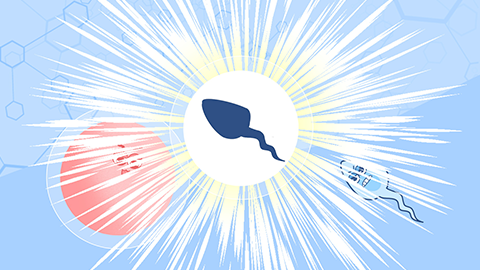What does it feel like when a fertilized egg implants?
Generally, the sensation during embryo implantation varies from person to person. Some individuals may experience mild abdominal distension, slight implantation bleeding, breast tenderness, fatigue, or temperature fluctuations. However, many others may not feel any obvious discomfort, and the specific manifestations vary significantly among individuals. The detailed explanations are as follows:

1. Abdominal Distension: Some individuals may feel a mild sensation of distension or dull pain in the lower abdomen during embryo implantation, similar to premenstrual discomfort. The pain is usually mild and short-lived. This sensation is often caused by local slight congestion or mild uterine contractions when the embryo implants into the endometrium.
2. Slight Implantation Bleeding: A small number of individuals may experience slight vaginal bleeding during implantation. The blood is usually light pink or brown in color, significantly lighter than menstrual flow, and lasts for about 1-2 days before stopping spontaneously. This occurs when the embryo penetrates the surface layer of the endometrium, causing minor rupture of local capillaries, with blood being discharged along with secretions.
3. Breast Tenderness: Hormonal levels change after implantation, with increased secretion of estrogen and progesterone, which stimulate breast tissue and may cause mild breast pain or tenderness. The nipples may also become more sensitive, with discomfort increasing upon touch. This sensation is similar to premenstrual breast tenderness but may last longer.
4. Fatigue: During implantation, the body consumes more energy to support embryonic development, and hormonal changes can also affect metabolism, leading some individuals to experience feelings of fatigue. This often manifests as reduced energy levels, easy tiredness, and a need for more rest even after routine activities.
5. Temperature Fluctuations: If you have been tracking basal body temperature, you may notice significant changes after implantation. Basal body temperature rises by 0.3-0.5°C after ovulation. If implantation is successful, the temperature remains elevated; if not, the temperature drops before the onset of menstruation.
There is no need to overly focus on or search for implantation sensations while trying to conceive, as this may increase psychological stress. Maintaining regular sleep patterns, a balanced diet, avoiding excessive fatigue and mental tension, and creating a favorable environment for conception will better support successful embryo implantation and development.





